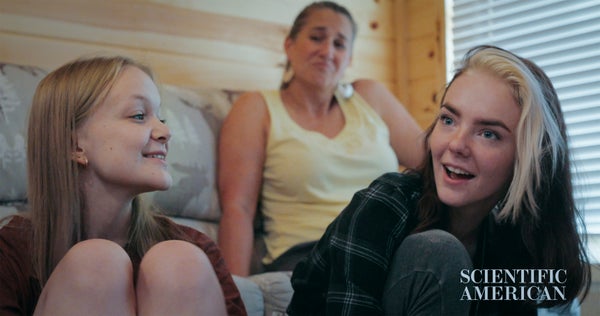For years, parents asked Danielle Howa Pendergrass to give their kids “the talk.” They worried that all the sex education bases weren’t covered in their kid’s classroom and didn’t know how to start the conversation themselves. Howa Pendergrass, a nurse practitioner who owns and runs a women’s health clinic in eastern Utah, would have one-on-one discussions with teenagers until she hatched an idea for a broader approach.
In late 2020 she launched a sex education program called Eastern Utah Teen Council out of her clinic to fill in knowledge gaps for local teens. “I would have never thought of coming into a community and starting a program that no one wanted,” Howa Pendergrass says. “It was from listening, from hearing, from people asking, from seeing the problems that arise when we’re not talking and knowing—that’s why you start something like this.”
Together with the program’s facilitator Tomi Lasley, she is trying to empower adolescents with accurate and inclusive information about sex and healthy relationships. Howa Pendergrass believes that this community-driven approach has provided a lifeline to teens who are otherwise kept in the dark about topics such as consent that are not covered in the state’s health curriculum, which stresses abstinence.
Utah’s teens seem to need that lifeline. Rape is the only violent crime in Utah that occurs at a higher rate than the national average, based on the state’s Indicator-Based Information System for Public Health. Still, the state’s lawmakers have voted against updating its sex education curriculum to include more information about sexual assault resources and prevention strategies for the past two years in a row.
While practicing abstinence is theoretically an effective method to avoid sexually transmitted diseases and unwanted pregnancy among consensual partners, abstinence education does not prepare teens to make informed decisions about their sexual health, researchers argue in a review paper published by the Journal of Adolescent Health. In the case of unplanned pregnancies, Utahans’ options may soon be restricted as well. The state has a so-called trigger law in place that would ban nearly all abortions if the Supreme Court overturns Roe v. Wade.
While debates around sex education and reproductive health care continue to unfold across the country, Howa Pendergrass hopes for a day when her program will be made obsolete by a more permanent solution. “The whole dream with Teen Council is to have it continue and be supportive until it’s unnecessary—until we’ve made those bigger and broader changes to where they can get the education in schools,” she says.
This story was co-published with the Salt Lake Tribune. Read its coverage here. The documentary short was supported by the Pulitzer Center.
